#queer academia
Explore tagged Tumblr posts
Text

In 1977, Vincent Price starred in a one-man-show where he played openly gay Oscar Wilde. The show was condemned by anti-gay activist Anita Bryant. When asked about her condemnation, Price replied that Wilde had already written a play about Anita: “A Woman of No Importance.”
1K notes
·
View notes
Text
I don't think there is a significant or notable number of people who believe transmascs are not oppressed.
I feel slightly insane just having to type this out, but this is rhetoric you inevitably come across if you discuss transfeminism on Tumblr.
The mainstream, cissexist understanding of transmasculine people is the Irreversible Damage narrative (one that's old enough to show up in Transsexual Empire as well) of transmascs as "misguided little girls", "tricked" into "mutilating themselves". It is a deliberately emasculating and transphobic narrative that very explicitly centers on oppression, even if the fevered imaginings misattribute the cause. As anyone who's dealt with the gatekeeping medical establishment knows, they are far from giving away HRT or even consults with both hands, and most transfems I know have a hard enough time convincing people to take DIY T advice, leave alone "tricking" anyone into top surgery.
Arguably, the misogyny that transmasculine folks experience is the defining narrative surrounding their existence, as transmasculinity is frequently and erroneously attributed to "tomboyish women" who resent their position in the patriarchy so much they seek to transition out of it. This rhetoric is an invisiblization of transmasculinity, constructed deliberately to preserve gendered verticality, for if it were possible to "gain status" under the sexed regime, its entire basis, its ideological naturalization, would fall apart.
Honestly, the actual discussions I see are centered around whether "transmisogyny" is a term that should apply to transmascs and transfems alike. While I understand the impetus for that discussion, I feel like the assertion that transmisogyny is a specific oppression that transfems experience for our perceived abandonment of the "male sex" is often conflated with the incorrect idea that we believe transmasculine people are not oppressed at all. This is not true, and we understand, rather acutely, that our society is entirely organized around reproductive exploitation. That is, in fact, the source of transfeminine disposability!
I know I'm someone who "just got here" and there is a history here that I'm not a part of, but so much of that history is speckled with hearsay and fabrication that I can't even attempt to make sense of it. All I know is that I, in 2024, have been called a revived medieval slur for effeminate men by people who attribute certain beliefs to me based on my being a trans woman who is also a feminist, and I simply do not hold those views, nor do I know anyone who sincerely does.
If you're going to attempt to discredit a transfeminist, or transfeminism in general, then please at least do us the courtesy of responding to things we actually say and have actually argued instead of ascribing to us phantom ideologies in a frankly conspiratorial fashion. I also implore people to pay attention to how transphobic rhetoric operates out in the wider world, how actual reactionaries talk about and think of trans people, instead of fixating so hard on internecine social media clique drama that one enters an alternate reality--a phantasm, as Judith Butler would put it.
Speaking of which--do y'all have any idea how overrepresented transmascs are in trans studies and queer theory? Can we like, stop and reckon with reality-as-it-is, instead of hallucinating a transfeminine hegemony where it doesn't exist? I'm aware a lot of their output isn't particularly explicative on the material realities of transmasculine oppression despite their prominence in the academy, but that is ... not the fault of trans women, who face extremely harsh epistemic injustice even in trans studies.
The actual issue is how invisiblized transmasculine oppression is and how the epistemicide that transmasculine people face manifests as a refusal to differentiate between the misogyny all women face, reproductive exploitation in particular, and the contours of violence, erasure, and oppression directed at specifically transmasculine people.
You will notice that is a society-wide problem, motivated by a desire to erase the possibilities of transmasculinity, to the point of not even being willing to name it. You will notice that I am quite familiar with how this works, and how it's completely compatible with a materialist transfeminist framework that analyzes how our oppression is--while distinct--interlinked and stems from the same root.
I sincerely hope that whoever needs to see this post sees it, and that something productive--more productive dialogue, at least--can arise from it.
#transfeminism#gender is a regime#materialist feminism#lesbian feminism#sex is a social construct#social constructionism#feminism#transmisogyny#anti transmasculinity#transphobia#erasure#epistemic injustice#epistemicide#queer theory#queer studies#queer academia
2K notes
·
View notes
Text

when I'm trying to get 40 sources on Queer Erasure in SPN and Cat....
(I have never done this before I'm a first semester and I plan on cramming this in 3 days)
406 notes
·
View notes
Text
Rare Language Learning: Polari
If you have ever used the words:
- Naff
- Butch
- Camp
You have unknowingly been speaking the sociolect known as Polari, the language of queer people primarily used in the 30s to the 70s. Polari is now an endangered language, as labelled by the University of Cambridge
Something of note: Many resources out there imply (or state) that Polari was a language invented and used solely by white cis gay men, which is decidedly untrue. Many words of Polari come from drag culture, lesbians, and the Romani people and their language. The use of ‘the language of British gay men’ may be a more palatable title to the general public, but it is not to me. I did my best to curate a variety of resources, but unfortunately much of queer history has been lost many more decades than I’ve been alive, if you have any other resources for studying Polari I would love to read them, message me or leave a link in the replies.
Articles
Learn Polari, the Secret Language of the Gays ⚢ Out Magazine
Polari: The code language gay men used to survive ⚢ BBC
Polari and the Hidden History of Gay Seafarers ⚢ National Museums Liverpool
The Story of Polari, Britain’s Secret Gay Language ⚢ Fabulosa!
Polari People ⚢ Fabulosa!
Polari: a language born from prejudice ⚢ Englishpanish
The secretive gay language that gave LGBTQ people a voice ⚢ GAYTIMES
A brief history of Polari: the curious after-life of the dead language for gay men ⚢ The Conversation
Study Material
The Polari Bible ⚢ Internet Archive
Fantabulosa: A Dictionary of Polari and Gay Slang ⚢ Internet Archive
Sociolinguistics / Polari ⚢ StudySmarter
FlashCards ⚢ Quizlet
New Polari Translator ⚢ LingoJam
Polari: A sociohistorical study of the life and decline of a secret language. ⚢ Dissertation, University of Manchester
Polari: a language born from prejudice ⚢ Englishpanish
Simon Bowkett: a short blog in Polari for LGBT+ History Month ⚢ Civil Service LGBT+ Network
#academia#studyblr#university studyblr#uni#university#student#linguistics#language study#language learning#langblr#languages#endangered languages#queer history#queer history month#lgbtq community#lgbtq history#lgbtq history month#lgbt#lgbt history month#queer academia#queer community#linguistic#Polari#Polari language#dialect#sociolect#pride#uk history#English history#university student
772 notes
·
View notes
Note
A great talk we've seen that needs more attention is Reimagining Trans Futures, the 2024 Scarman Lecture by the University of Leicester, where 2 trans academics talk about trans joy, resistance over time, and drowning out oppression to dream of a better future: it is 80 minutes, but it's a very good 80 minutes: https://youtu.be/hWYDCQSPD80?si=jZaVRFd80s--sqhM
thank you so much for this. i will watch and maybe post a review
#trans punk#transgender#lgbt#punk academia#queer academia#resistance#trans joy#hopepunk#our trans punk experience
52 notes
·
View notes
Text
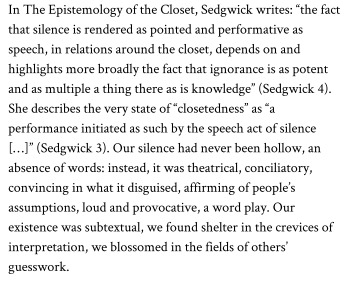
"In The Epistemology of the Closet, Sedgwick writes: "the fact that silence is rendered as pointed and performative as speech, in relations around the closet, depends on and highlights more broadly the fact that ignorance is as potent and as multiple a thing there as is knowledge" (Sedgwick 4). She describes the very state of "closetedness" as "a performance initiated as such by the speech act of silence [...]" (Sedgwick 3). Our silence had never been hollow, an absence of words: instead, it was theatrical, conciliatory, convincing in what it disguised, affirming of people's assumptions, loud and provocative, a word play. Our existence was subtextual, we found shelter in the crevices of interpretation, we blossomed in the fields of others' guesswork."
© Sam L. Greene
#trans#poetry#aesthetic#literature#queer writing#queer academia#dark academia#light academia#lgbtqia#nonbinary#non binary#non-binary#coming out#closet#transgender#transmasc#queer theory#feminism#feminist theory#eve kosofsky sedgwick
20 notes
·
View notes
Text
The most bisexual-coded thing I have ever done was writing my undergrad thesis in English Lit about queer vampirism and the relationship of Louis and Lestat in the IWTV TV adaptation.
There were screen grabs of gay vampire sex in the appendix.
#IWTV#lestat de lioncourt#louis de pointe du lac#loustat#the true dark academia#academia#queer academia
39 notes
·
View notes
Text
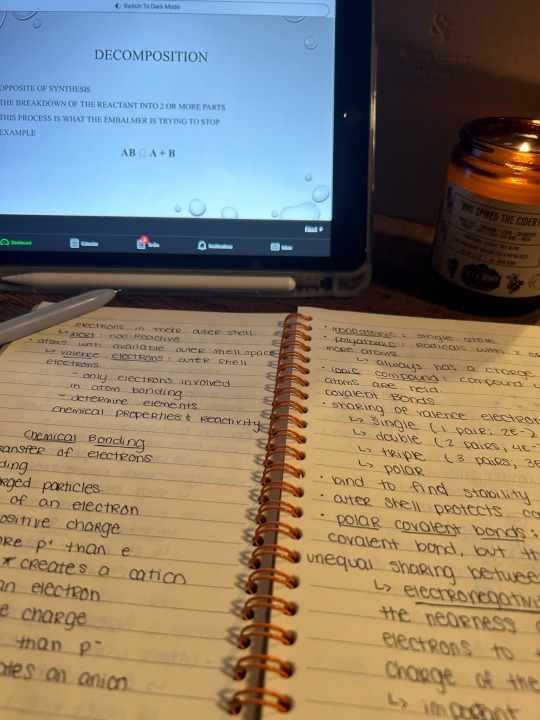
─── ・ 。゚☆: *.��� .* :☆゚. ───
03.04.2024.
happy march, everyone! 🌿🌷🌱
i caught up on all my homework over the weekend & i’m ahead in all my note-taking. i’ve already done a quiz for chemistry (i got an 88!) & i’m gearing up for tomorrow’s accounting quiz.
[❔] : how has everyone’s monday been?
today’s to-do list:
chemistry class & quiz.
set up pet dander vacuum.
shower & shave legs.
face mask.
dishes.
do my nails.
🎧: everglow - starset.
📖: natural beauty - ling ling huang.
🌲: 30 minutes.
─── ・ 。゚☆: *.☽ .* :☆゚. ───
#anatomy study#study buddy#study space#stem studyblr#science studyblr#studyblr#study blog#studyspo#study motivation#stemblr#stem student#queer academia#chaotic academia#dark academia#light academia#chronically ill academia#deathblr#mortuary student#— mortuary memoirs.
48 notes
·
View notes
Text
—inferiority complex in queer relationshipsᝰ.ᐟ
let’s talk about inferiority complex in lgbtqia+ relationships; i struggled and am still struggling about this so i felt like i needed to, y'know... self-awareness i guess?
like, we all know relationships can be messy, complicated, and full of overthinking. but when you add the whole society constantly judging your existence factor, things get even messier. feeling "not enough" in a relationship is already a tiring thing, but for queer people? yeah, it fucks different.
first, let’s get the basics down. inferiority complex is basically when someone constantly feels like they’re less than others— less attractive, less lovable, less worthy, less smart, basically less. alfred adler, a psych dude from the early 1900s, came up with the term, and it’s still super relevant.
now, combine that with lgbtqia+ struggles (internalized homophobia, heteronormativity, body image issues, societal rejection, etc.) which even you are confused about what you are sometimes and boom. you’ve got a perfect recipe for self-doubt and unhealthy relationship dynamics. viola!
why does this matter? well, relationships should be a safe space, not a battleground for self-worth. but for queer people, there’s often an extra layer of insecurity that comes from growing up in a world that tells them they’re less than everything "normal". this entry is gonna dive deep into why that happens, how it shows up in relationships, and what we can actually do about it.
we’ll be looking at the psychological roots of inferiority complex, the external pressures that make it worse, and the ways it messes with lgbtqia+ relationships— whether it’s one partner feeling "not good enough" or both struggling with their own self-worth. also, spoiler: it’s not just about self-esteem. it’s about power imbalances, jealousy, validation-seeking, and how society shapes the way we see ourselves and our partners.
so yeah, let’s get into it. because queer love deserves better than this cycle of self-doubt. i deserve it.
╭┉┈ psychological foundations
alright, time to get into the nerdy stuff. (that one purple-gray sonic being freaky type nerdy)
inferiority complex is basically when someone constantly feels like they’re not good enough, no matter what they do.
and surprise, surprise— this happens a lot in queer relationships because of all the external and internalized bullshit queer people deal with. let’s break it down.
alfred adler’s inferiority complex theory (why we feel like shit sometimes)
so, alfred adler (big psychology guy from the early 1900s) came up with the whole inferiority complex idea. he said that as humans, we’re all born with some level of insecurity because we start off as weak little babies who need to figure out how to survive. over time, we try to overcome these insecurities by proving ourselves— through achievements, relationships, or whatever makes us feel valid. sounds normal, right?
except, when someone constantly feels like they’re failing or being compared to others, that insecurity turns into an inferiority complex— you can call it a deep-rooted belief that they’re never not good enough. this can make people either shut down (avoid relationships, isolate, or self-sabotage) or overcompensate (act super confident but secretly hate themselves). and if this sounds familiar, yeah, a LOT of queer people deal with this, thanks to a lifetime of being told they’re "less than" by society.
self-esteem, social comparison, and why we always feel like we don’t measure up:
low self-esteem and inferiority complex go hand in hand. and in the lgbtqia+ community, self-esteem is often shaped by:
- how accepted (or rejected) someone was growing up
- representation in media (do i have to explain? it’s usually unrealistic or toxic or heteronormative IF IT IS SHOWN AS ACCEPTED. i don't want to get into the homophobia in media.)
- dating culture and queer beauty standards (which can be brutal and really depressing, now don't start with everyone is beautiful, some of you guys DISCRIMINATE BY LOOKS)
- comparing themselves to straight/cis relationships (which society calls "normal" lmao what does even "normal" mean?)
- comparing themselves to pasts of their love interest (i can't even bring myself to talk about this)
this constant comparison can make someone feel like they’re failing at being queer enough or attractive enough or successful enough which all play into inferiority complex in relationships.
minority stress & internalized oppression (why society fucks us over)
there’s also this fun little concept called minority stress, which basically means that just existing as a different person adds extra emotional weight to your life. lgbtqia+ people deal with:
- discrimination (subtle or straight-up aggressive)
- fear of rejection (by family, friends, partners, society, etc.)
- internalized homophobia/transphobia (believing the negative things people say about them)
- constantly having to *prove* they’re valid
- thinking your love interest's past lover/interest was less "less" than you or your love interest feeled them more
this constant stress creates a cycle where people start believing they’re not worthy of love, success, or happiness. and if they do find a relationship, they might overthink everything, self-sabotage, or settle for less than they deserve because they don’t think they can do better.
so yeah, inferiority complex in queer relationships isn’t just about personal insecurities— it’s built on years of societal messages that make people doubt & hate themselves. and that’s exactly why we need to talk about it.
╭┉┈ causes of inferiority complex in lgbtqia+ relationships
okay, so we know what inferiority complex is and how it connects to lgbtqia+ experiences. but why does it happen so much in queer relationships? well, a mix of internal struggles, societal expectations, and past trauma all play a role. let’s break it down.
internalized homophobia/transphobia: when society’s bullshit becomes your inner voice
growing up in a world that constantly tells you there’s something wrong with you? yeah, that sticks. internalized homophobia/transphobia is when queer people start believing the negative things said about them. even if they fully support lgbtqia+ rights, deep down, they might still feel like they’re less than, unloveable or undeserving of love.
in relationships, this can show up as:
- believing they’re not "worthy" of a happy, healthy relationship
- thinking they have to "prove" their queerness or masculinity/femininity/nonbinarity/etc.
- feeling like they’re never good enough for their partner
- pushing their partner away out of fear of rejection
basically, it’s like carrying around an invisible weight of self-doubt, and it makes relationships way harder than they need to be.
heteronormative pressures: feeling like you’re doing relationships ‘wrong’
heteronormativity is the idea that straight, cisgender relationships are the default and everything else is weird or lesser. even if you’re fully out and proud, these expectations can still mess with your mindset.
this can look like:
- wondering if your relationship is "valid" because it doesn’t look like the traditional model
- feeling pressure to fit into the generally unrealistic "masc/fem" dynamic in same-gender relationships
- struggling with public displays of affection because of fear or discomfort
- thinking your relationship is "less serious" because society doesn’t treat it the same way
all of this builds up and makes people feel insecure, like they’re failing at relationships just because they don’t fit into the mold society expects.
social marginalization: being excluded, erased, or treated like a ‘phase’
another big reason inferiority complex shows up in queer relationships? society loves to ignore, fetishize, or straight-up erase lgbtqia+ love.
- bi & pan & similar people get told they’re "just confused" or "going through a phase"
- ace & aro people are treated like they’re broken
- trans & nonbinary people face constant invalidation about their gender and relationships
- queer relationships are often left out of family conversations, media, and even legal protections
when you constantly have to fight to be seen and taken seriously, it’s easy to start questioning your own worth in a relationship.
body image & gender expectations: the queer beauty standards struggle
yeah, body image issues affect everyone, but the lgbtqia+ community has its own set of impossible beauty standards.
- in gay & lesbian spaces, there’s often pressure to be super fit, masc/fem, or "high-value" (i have no words)
- trans people deal with dysphoria, passing expectations, and unrealistic beauty ideals (while some trans people look "ugly" post-transition or for pre-transition phase "doesn't look like trans enough for a person who wants to be a *gender")
- even within the community, certain body types & gender presentations are favored over others (i hate, yes i hate all of you. having preferations and favoring is different, search it up.)
when people don’t feel like they fit into these standards, it can seriously mess with their confidence in relationships. like, why would my partner want me if I don’t look like the "ideal" queer person? this causes people feeling less than other people in community.
comparison & the ex-factor: needing to be "better" (i wrote this a bit longer than others because i experienced this)
okay, let’s be real— comparing yourself to your partner’s ex or past crushes is already bad enough. but for people dealing with an inferiority complex, +being queer, it doesn’t stop at just feeling less than— it turns into a full-on need to prove superiority.
like, it’s not just "what if they were better?" it’s "i have to prove MYSELF that i’m better than them in every possible way."
this can turn into:
- constantly searching for things you have that the ex didn’t (better looks, better personality, more interesting life, whatever helps your brain cope) this sometimes includes making your partner talk about their ex to get yourself assured, no matter if your partner wants or not.
- lowkey feeling like you’re competing against a ghost—someone who isn’t even in your partner’s life anymore, but still exists in your mind as an "enemy"
- stalking that ex/exes over and over, finding similarities between you & ex while comparing yourself to the ex
- violating your partner's privacy by going through their phone/messages/photos and convincing yourself that your partner felt/feels them more. (felt as in felt emotion and/or physical pleasure)
- needing your partner to verbally confirm that you’re better— like fishing for reassurance or trying to get them to rank you above their ex
- feeling weirdly defensive if your partner ever says something neutral or positive about their past relationships (even if it has nothing to do with you nor that spesific ex/exes)
- going out of your way to *be the best partner ever*. not just because you want to, but because you feel like you need to outdo whoever came before you
this mindset usually comes from a mix of insecurity + fear of being replaceable. if you already struggle with feeling "not enough," the idea that your partner used to love someone else can feel like a direct attack on your worth. even if they’ve moved on, your brain is like,
- but were they happier with them?
- did they love them more?
- am i just the second choice?
- am i a replacement?
- did partner love ex more?
- does partner think of ex when they are near me?
- what about intimacy? does partner think of ex while we are having intimacy?
- was ex better than me at sex?
- were ex more attractive? sexy? do i even look sexy? am i pretty enough for partner, better than ex?
- am i even good at sex? do i turn partner on?
- am i even worth dating let alone having sex?
goes on and on and on and on. (these are actual questions i wrote on my diary when i was having trouble about my gf's ex.)
but here’s the thing: love isn’t a competition. your partner didn’t pick you because you’re "better" than someone else— they picked you because you’re you. trying to "win" against someone from the past isn’t just exhausting— it also stops you from actually enjoying the relationship you have now.
economic & social disparities: financial struggles = self-worth struggles
money problems can trigger inferiority complex too, and lgbtqia+ people are more likely to face financial struggles because of:
- workplace discrimination
- mobbing
- lack of family support
- fewer job opportunities in certain industries
in relationships, financial insecurity can make someone feel like they’re not "bringing enough to the table," which can lead to power imbalances and self-doubt. i have literally zero experiences about this and i couldn't find anything online, so i am sorry about lack of information and examples.
past trauma & rejection: emotional baggage that doesn’t just disappear
whether it’s family rejection, a toxic ex, bullying or any other kind of trauma, past experiences stick with people. hair hold memories kinda shit, but in this case it's your brain. if someone has been told that they’re unlovable or not good enough, they might carry that fear into their current relationship. this can lead to:
- overcompensating (constantly trying to "earn" love)
- self-sabotage (pushing people away before they can leave or the behavioural things caused by inferiority complex ruinin your relationship)
- trust issues (assuming their partner will eventually hurt them)
so yeah, inferiority complex in queer relationships isn’t just a random thing— it’s built on years of external and internal struggles. and if people don’t recognize it, it can seriously mess up their relationships.
╭┉┈ how inferiority complex shows up in lgbtqia+ relationships
so we’ve talked about why queer people struggle with inferiority complex in relationships, but how does it actually happen irl? like, what does it look like when someone’s self-doubt starts creeping into their love life? it’s not just overthinking and feeling insecure— it can shape the entire dynamic of a relationship.
1) comparison obsession: the ex, the crush, the imaginary competition
we already touched on this, this is one of the biggest ways inferiority complex messes with relationships. it’s not just a casual "oh, i wonder what their ex was like," it’s a full-blown mentality of jealousy and hatred in a 'non-jealous + no-hate' way.
and then, of course, comes the need to be "superior." suddenly, it’s not just about existing in the relationship, it’s about winning. you start analyzing everything, trying to prove yourself that you’re better, prettier, sexier, more loveable than the ex. maybe you start manipulating, maybe you get defensive anytime their past is mentioned, maybe you just sit there in a mental cage-match versus a person who doesn’t even know you exist.
it's exhausting.
the worst part? this mindset turns the relationship into a self-competition instead of a mutual connection. the focus shifts from enjoying the love you have to trying to prove your worth to yourself— like you have to have an assurance. and that’s just sad, because if they’re with you, they chose you.
2) validation addiction: needing constant reassurance
inferiority complex can make someone crave validation like it’s a survival necessity. not just casual complimentary— constant proof that they’re loved, desired, and valued. this can look like:
- asking their partner to rank them compared to their ex/crushes
- needing frequent "i love you"s just to feel secure
- getting anxious if their partner doesn’t compliment them enough
- reading way too much into neutral comments (like, "what do you mean my hair looks ‘different’ today? different in a good way or a bad way?!")
- even in a slight inconvenience, thinking that their partner doesn't love them like partner loved ex.
this isn’t just about wanting affection— it’s about needing external proof of self-worth because they don’t fully believe it themselves.
3) fear of abandonment & self-sabotage
when someone deep down believes they’re not enough, they start expecting their partner to leave. sometimes, this turns into toxic clinginess— constantly checking in, overcompensating, never wanting to be apart:
- prohibiting their parner from doing basic daily activities (meeting friends, having alone time, constantly sending too much tiktoks/reels about love, overreacting to everything, etc.)
- when partner chooses something above them (like going to school, doing homeworks first, showering, etc) being uncomfortable that they are the second choice
- getting jealous over everyone including family members
- being obsessed about winning the "i love you more" competition
other times, it leads to self-sabotage:
- picking fights over small things just to test if their partner will stay
- distancing themselves so they don’t get too attached
- assuming every small issue means the relationship is doomed
- shutting down emotionally because "they’re going to leave anyway, so why try?" or "if i tell them this, they will get bored and leave."
it’s like the brain is trying to protect itself from heartbreak by causing problems before they even exist.
4) power imbalances: feeling like the ‘lesser’ partner (dangerous one)
inferiority complex can make someone feel like they have to earn their place in a relationship. like, instead of seeing themselves as an equal, they feel like they have to "keep up" with their partner— whether that’s in looks, intelligence, success or even just personality.
this can lead to:
- feeling like they’re "lucky" to be with their partner, instead of believing they deserve love
- putting up with toxic behavior because they think they can’t do better than the current partner
- never expressing their needs because they don’t want to "cause problems"
- agreeing with everything their partner says just to avoid conflict
- quitting things because partner already does is better and why would they bother ("my partner is so handsome even without a mustache, so why would i grow my mustache out? i'd look ugly even if i had a mustache.")
over time, this turns the relationship into a one-sided dynamic where one person is constantly trying to prove their worth while the other just… exists. and that’s not fair to both of the people.
5) imposter syndrome in queer relationships: ‘do i even deserve this?’
for lgbtqia+ people, there’s an extra layer of relationship imposter syndrome— especially if they’ve been told their whole life that queer love is "less real" or "less serious" than hetero relationships. even in a happy, healthy relationship, there’s sometimes this nagging thought of:
- am i actually good at this, or is my partner just settling?
- do we actually have something real, or am i just fooling myself?
- if society doesn’t see our love as valid, is it even real?
this kind of thinking isn’t just annoying— it can make people hold back from fully embracing their identity, yet relationships. like they’re waiting for something to go wrong because deep down, they don’t think they deserve happiness which is caused by society's disapproval.
6) so what’s next?
okay, so we’ve established that inferiority complex can absolutely wreck a relationship if left unchecked. but the good news? it’s not permanent. in the next section, we’re gonna talk about how people can actually break this cycle, build confidence, and have relationships that aren’t driven by insecurity and comparison. queer love deserves better than this self-doubt spiral.
╭┉┈ breaking the cycle: overcoming inferiority complex in lgbtqia+ relationships
so, we’ve talked about how inferiority complex shows up, why it happens, and how it can lowkey ruin relationships. but here’s the good news: it doesn’t have to be like this. nobody is doomed to feel like they’re not enough forever. breaking the cycle takes work, but it’s 100% possible. let’s get into it.
stop the ex-obsession: shifting the mindset from ‘better’ to ‘different’
okay, let’s address the biggest energy drain first: the ex-comparison spiral. it’s time to stop thinking in terms of better vs. worse and start thinking in terms of different.
- instead of "was their ex better than me?" → try "their past relationships were different, but they’re with me now for a reason."
- instead of "do they still have feelings for their ex?" → try "if they wanted to be with them, they would be. but they’re here, with me."
- instead of "i have to prove i’m superior" → try "i don’t need to compete with someone who isn’t even in the picture anymore."
relationships aren’t math equations. there’s no ranking system where one person wins and the other loses. different people bring different things to a relationship, and just because someone was loved before doesn’t mean you’re any less important now.
also, be fucking for real— sitting around mentally wrestling an ex you’ve never even met? a waste of energy. your relationship is happening now, and that’s what matters.
breaking the validation addiction
if you constantly need your partner to reassure you that you’re enough, the real issue isn’t them— it’s you not believing it yourself. external validation is nice, but if you rely on it to feel secure, it’s never gonna be enough.
- recognize when you’re fishing for reassurance. before asking "do you really love me?" for the 10th time that day, ask yourself— am i asking this because i actually need to hear it, or because my brain is spiraling?
- practice self-affirmation. sounds cheesy, but telling yourself "i am enough, i am valuable, i am worthy of love" (yes, out loud) actually rewires your brain over time.
- sit with discomfort instead of reacting. when the insecurity kicks in, instead of immediately reaching for validation, try to just feel it. let it pass. remind yourself that your feelings don’t define reality.
your partner’s love is a beautiful thing, but it shouldn’t be your only source of self-worth.
unpacking past trauma & internalized beliefs
a lot of inferiority complex issues aren’t even about the relationship itself— they’re about deep-rooted self-worth struggles. maybe you grew up in a homophobic environment, maybe you had an ex who treated you like you weren’t enough, maybe you were bullied. whatever it is, those experiences don’t just disappear— they shape how you see yourself now.
- therapy. im not shitting with you, for real. if you have access to it, therapy is a game-changer for unpacking self-worth issues. a professional can help you reframe your thinking and break toxic patterns.
- journaling. write down the thoughts that come up when you’re feeling insecure. where do they come from? are they actually true, or just old fears resurfacing?
- self-compassion. seriously, *be nice to yourself.* imagine if a friend came to you with the same insecurities— would you tell them they’re not enough? no? then don’t do it to yourself either.
stop making your partner the ‘judge’ of your worth
this is a big one: your partner is not the person who decides if you are worthy of love. you already are, no matter what. the goal of a relationship isn’t to prove you’re enough— it’s to share love, support, and experiences *as equals.*
- you don’t have to earn your partner’s love. they chose you, and that’s enough.
- their past relationships don’t change your value.
- being in a relationship doesn’t make you worthy— you already were, even before this relationship existed.
once you start believing this, relationships stop feeling like tests you have to pass and start feeling like what they’re actually supposed to be: partnerships.
building confidence outside of the relationship
self-worth shouldn’t only come from your love life. having a strong sense of identity and confidence outside of your relationship makes you feel more secure in it.
- find passions that make you feel good about yourself. creative projects, fitness, learning something new—whatever makes you feel accomplished.
- surround yourself with supportive people. friendships, chosen family, online communities— having other sources of love and validation helps take the pressure off your relationship.
- celebrate your wins. every time you challenge a negative thought or feel secure without needing external validation, that’s growth.
╭┉┈ final thoughts: queer love deserves better than insecurity
inferiority complex can make love feel like a competition, like you have to constantly prove yourself. but real love isn’t about proving anything. it’s about connection, trust, and showing up as your full, authentic self.
so yeah, breaking the cycle takes time. some days will be harder than others. but learning to let go of comparisons, validate yourself, and embrace your own worth? that’s how you create relationships that feel good.
and every queer person —every person in general deserves that.
you are valid, you are loveable, you deserve to be loved, you are sexy, you are handsome, you look beautiful, you are gorgeous.
you are fucking queer. embrace that.
[pictures are from pinterest, some about the entry some just funny to me + purple/gray sonic freaky meme]
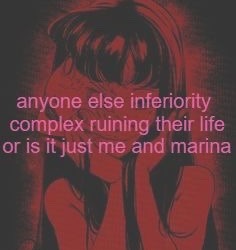
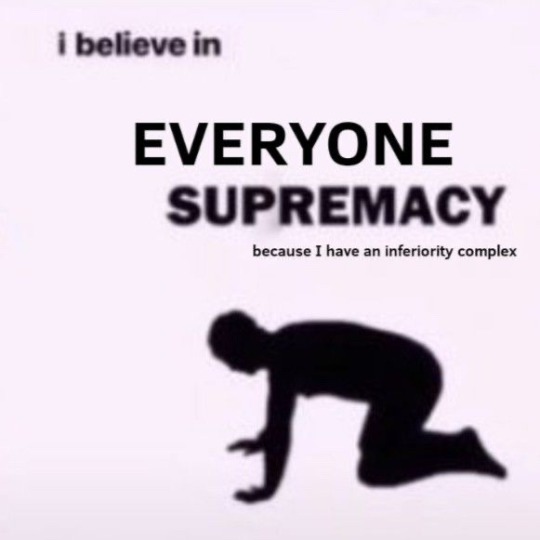
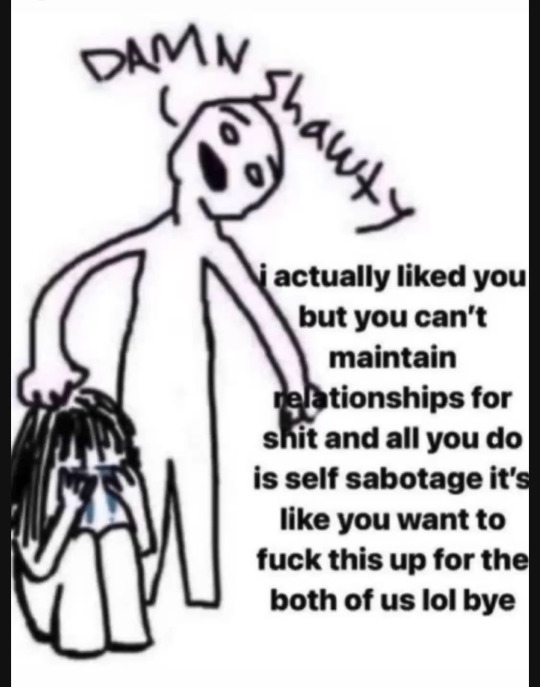
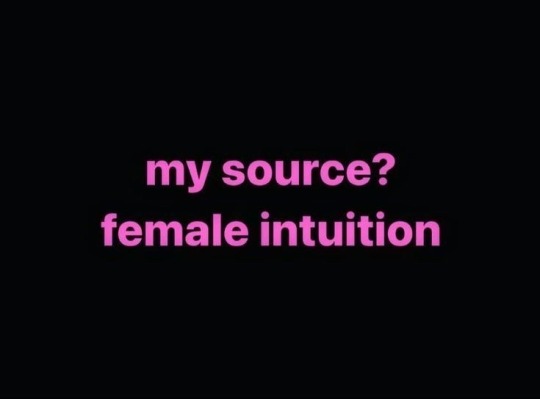

#lgbtq community#lgbtq#lgbtqia#lgbt pride#lgbtq positivity#lgbtqiia+#lgbtq rights#lgbt awareness#lgbt advice#lgbt ally#inferiority complex#psychology#queer community#queer#queer academia#queer pride#gay mlm#gay love#gay#gay men#lesbian#wlw post#wlw yearning#wlw community#wlw love#wlw#sex education#safe sex#mental health#mental illness
8 notes
·
View notes
Text

Virginia Woolf's Bedroom at Sissinghurst Castle in Kent
1K notes
·
View notes
Text
On the limitations of 'AFAB' and its attendant epistemic anxieties
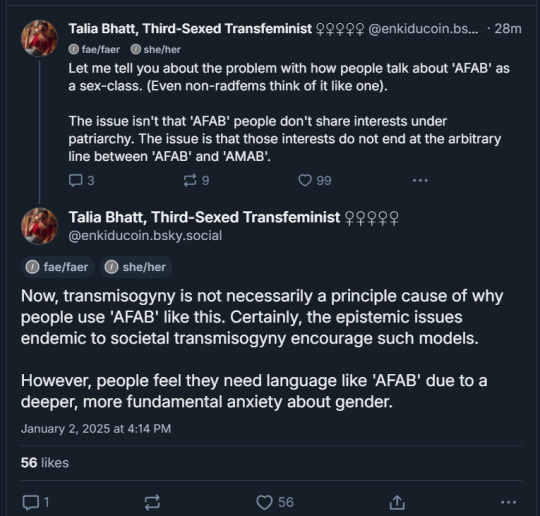

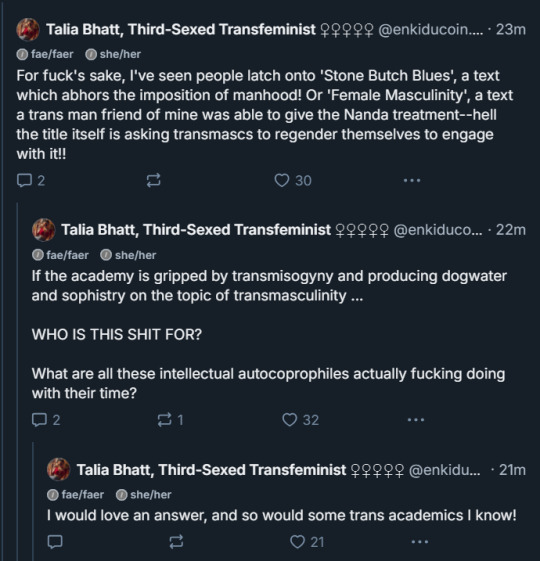
Like, let's actually talk about the shortcomings of these linguistic tools, and how we--all of us--have been failed by those at the supposed bleeding edge of gender theory.
#transfeminism#materialist feminism#gender is a regime#sex is a social construct#social constructionism#feminism#third sexing#degendering#asab language#queer academia#critique of the academy
836 notes
·
View notes
Text


Nov. 23
Study date at a coffee shop with my butch. I got a maple spice latte and he had an Italian soda.
#studyblr#study aesthetic#studyinspo#study motivation#art student#studyspo#chaotic academia#dark academia#queer#queer academia
19 notes
·
View notes
Text
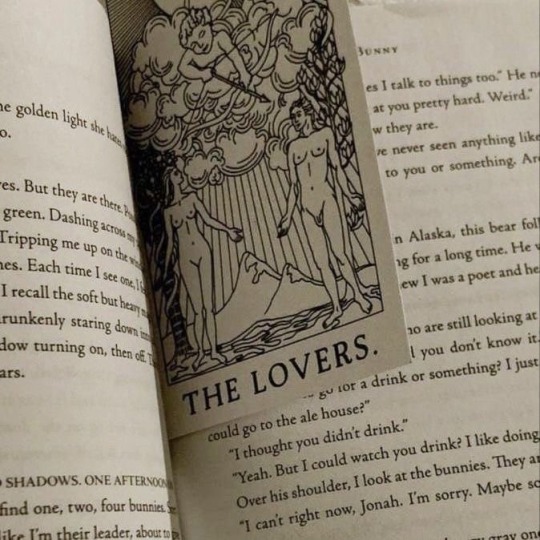




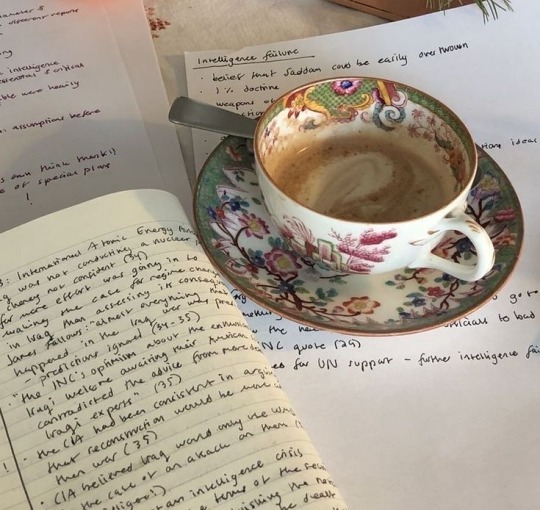
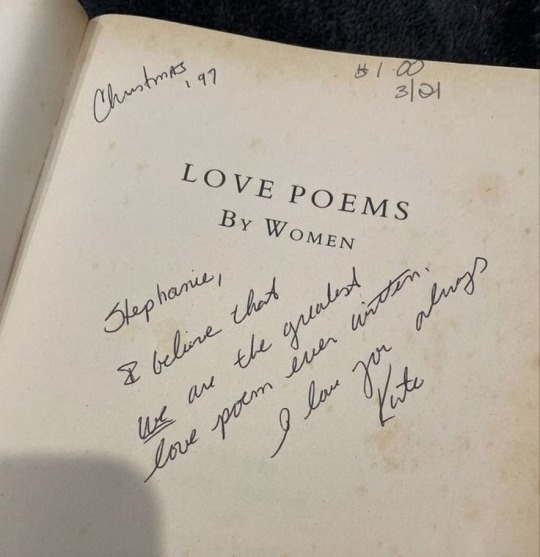
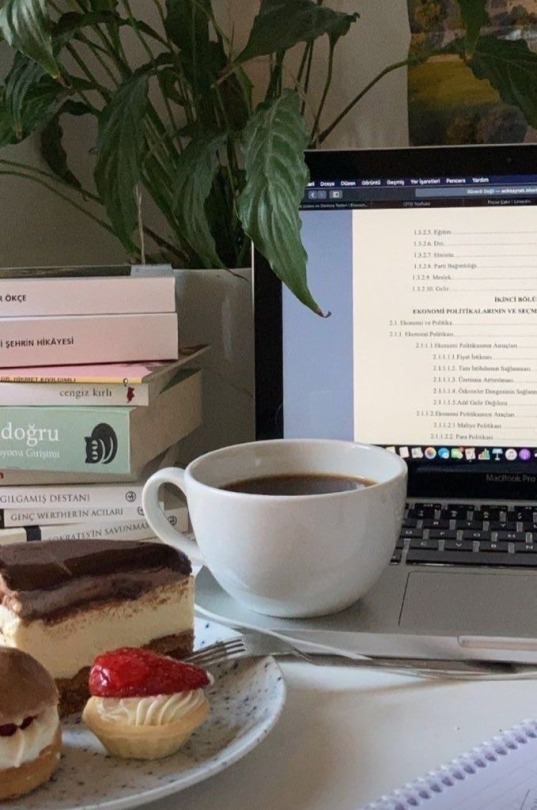

She’s a summer girl ☀️🍒
Summer afternoon – summer afternoon; to me those have always been the two most beautiful words in the English language.
— Henry James
#academia#moodboard#academia moodboard#queer academia#university studyblr#studyblr#uni#university#aesthetic#studyblr community#light academia moodboard#mood board#light academia aesthetic#light academic aesthetic#light academia#university student#college student#summer
247 notes
·
View notes
Text
We need more abandoned Catholic churches in the woods for young lesbians to have sex in. Thats it. Send post.
#this will be my campaign slogan when I run for president of the world#chaotic academia#queer academia#txt#literary desire
40 notes
·
View notes
Text

Biology notes and hand cramps man
But hey, whatever gets me an A ig?
#no but fr how is the one class I haven’t taken the precursor to my best#chat what#queer academia#chaotic academia#light academia#dark academia#light acadamia aesthetic#dark acadamia aesthetic#academia aesthetic#it girl#it girl problems#aesthetic
14 notes
·
View notes
Text

— Megha Majumdar, A Burning.
#megha majumdar#national book awards#literature#desi academia#lgbtq#dark academia#queer academia#lgbtqia#books#book quotes#indian literature#booklr#hijra#trans woman#english#english language
12 notes
·
View notes